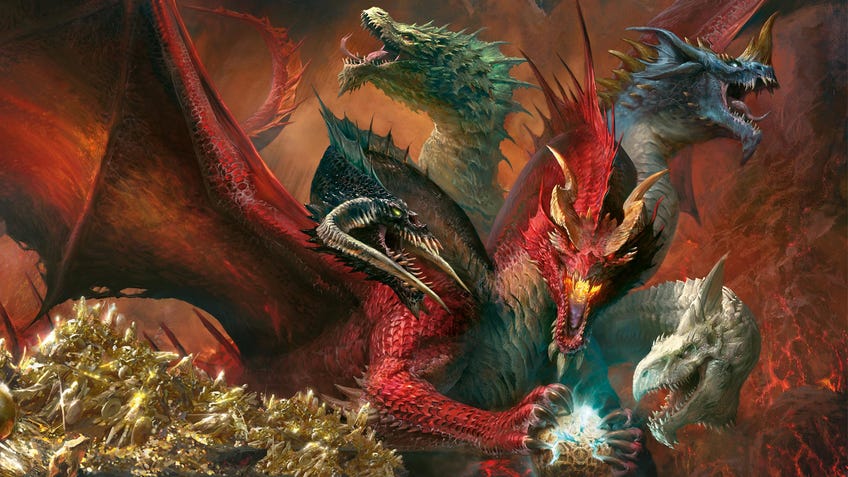Dungeons & Dragons increases price of printed books despite continuous financial success
Higher physical book prices begin later in 2023 while digital editions remain solid, for now.
Players will soon need to cough up a bit more money to secure physical editions of Dungeons & Dragons sourcebooks - roughly 20% more. Publisher Wizards of the Coast pointed the blame finger at rising cost of producing and shipping goods but failed to mention the consistently profitable state of the tabletop RPG franchise in its explanation.
A post to the D&D Beyond community blog on May 23rd characterised the news as “not particularly fun”, saying that “with the cost of goods and shipping continually increasing, we’ve finally had to make the decision to increase the price of our new release print books. We're committed to creating high-quality products that deliver great value to our players and must increase our prices to accomplish that.”
D&D’s standard sourcebooks have maintained a steady suggested retail price (often abbreviated as MSRP) of $59.95 since 5th Edition’s release in 2014. Beginning with the upcoming Bigby Presents: Glory of the Giants and rolling forward, that price will increase to $69.95. This increase will not affect the currently available preorder bundle on the official D&D store.
It’s no exaggeration that the price of producing and shipping physical books has remained comparatively high after the COVID-119 pandemic destabilised the global shipping ecosystem in ways that will be felt for years hence. But parent company Hasbro, via the mouth of CEO Chris Cocks and Wizards of the Coast President Cythia Williams, has extolled D&D’s financial consistency on the company’s quarterly earning reports. The tabletop RPG-cum-massive brand increased profits by double digits even when Hasbro felt the US recession squeeze the life from its projections.
The increase in price likely has more to do with making sure that line continues to go up than it does keeping the massive toy and game conglomerate solvent. D&D’s newest editions are roughly a year away from publication, making the timing of a sticker bump more than a little convenient. Some could argue that this new price values the amount of work that writers, editors, artists, designers, layout, culture and sensitivity consultants and the army of freelancers put into each sourcebook - but there’s no evidence that Wizards of the Coast will be increasing the pay of their creative staff in response to higher book prices.
In fact, the company’s executives and shareholders believe that the D&D brand is “under monetized”, a statement made late last year and before its latest feature film, Honour Among Thieves, proved a huge hit at global box offices and a lucrative move from Hasbro’s entertainment wing. The other major part of D&D’s brand empowerment scheme was doubling down on digital products, leaning on online play and downloadable purchases as the default way to engage with D&D as a tabletop game.

Players will likely still purchase physical books in this imagined digital future, but the company won't feel tied to them as their main revenue model - unlike other smaller publishers. Why then raise the price? For the same reason as any other for-profit company - what’s stopping them? Recession-fueled rises in shipping and production offer the perfect smokescreen for permanently bumping up the needle on goods, even when conditions improve.
There’s an argument that charging more for D&D books provides independent designers leeway to do the same, but that feels cynical in a tabletop industry that has spent the better part of 2023 distancing itself from the actions of this monolithic brand. Dicebreaker has reached out to Wizards of the Coast for more information regarding the const increase on physical books, but we should assume the reasoning is the same for any other company with a board of investors: line goes up, no matter what.









